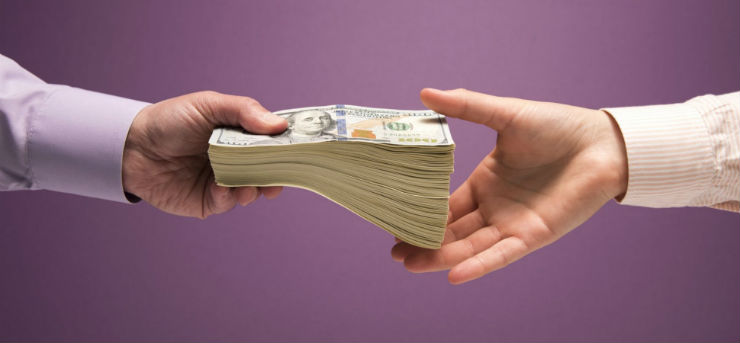How do you know if you’re working with a narcissist? One way is to get him or her to submit to a Narcissisti Personality Inventory, the most commonly used measured of narcissism. (Good luck with that.) Or you could try this 3-minute quiz to get some indication of where you or someone you know falls on the narcissism spectrum.
But what if you’re just trying to get a sense of how going to be pretty hard to do if you’re just trying to get a handle on how self-aggrandizing, assertive, eager to take charge, and willing to manipulate others an employee, vendor, or supplier might be?
Here’s a simple approach. Research from the Journal of Consumer Psychology indicates that narcissists tend to purchase items that make them stand out. They prefer exclusivity and individuality — limited edition, highly customizable products that highlight the person’s “individuality.”
According to one of the authors of the study:
Narcissists seek to self-enhance. One way to do so is by buying products for symbolic as well as material reasons — for what they mean as well as what they do… narcissists’ interest in consumer products, whether bought for themselves or for others, is strongly driven by the power of those products to positively distinguish them.
Narcissists feel better about themselves because they think they have succeeded in’ individualizing’ or elevating themselves.
In other words, narcissists tend to show a preference for relatively scarce or exclusive products. (If I’m special, then the things I own need to be special too, right?)
Narcissists are also less likely to evaluate the relative price, quality, and utility of the items they purchase — which possibly explains why someone would spend $400,000 on an Aventador when a GTR performs nearly as well (and sometimes better) in most measurable performance categories, and for one-fourth of the price.
The Aventador screams, “Look at me!” while the GTR, well, doesn’t. Which is pretty much the point.
In short, the more symbolic rather than practical the value a person places on a purchasing decision, the more likely they are to be a narcissist.
Of course a little narcissism isn’t a bad thing. And you’re not a narcissist just because you can’t resist taking the occasional selfie or sometimes bragging about your latest achievement. Narcissism, like many personality traits, exists on a spectrum.
And not all narcissists see themselves as superior in intelligence, appearance, experience, etc. to everyone around them.
Some narcissists, for example, devote their lives to helping others; deriving their feelings of self-worth (and the topic of most of their conversations) from their generosity and self-sacrifice. (Their “tell” is that they need, to a relatively larger degree, for other people to recognize just how self-sacrificing they are.)
Others feel they are more sensitive than other people, although not in a particularly good way — they don’t respond well to even the mildest criticism and need frequent praise and recognition. (Their “tell” is that they need, to a relatively larger degree, for other people to recognize just how special they really are.)
Regardless of how narcissism manifests itself, and to what extent, what narcissists need is to feel like they are superior to other people. That’s why what they say and do is often intended to place themselves above other people. Narcissists need to feel better about themselves… which means they need you to feel better about them.
And which means they often buy things intended to enhance their sense of self.
So if you think someone you work with may be a narcissist, that’s okay. Just factor that in to the way you treat them. Praise them a little more often. When they talk about themselves, be a little more understanding. That’s what emotionally intelligent people do — they empathize with and adapt to the people around them.
Narcissists, like the rest of us, just want to feel better about themselves. Maybe a little more overtly than some, but still.
And is wanting to feel better about yourself such a bad thing?













